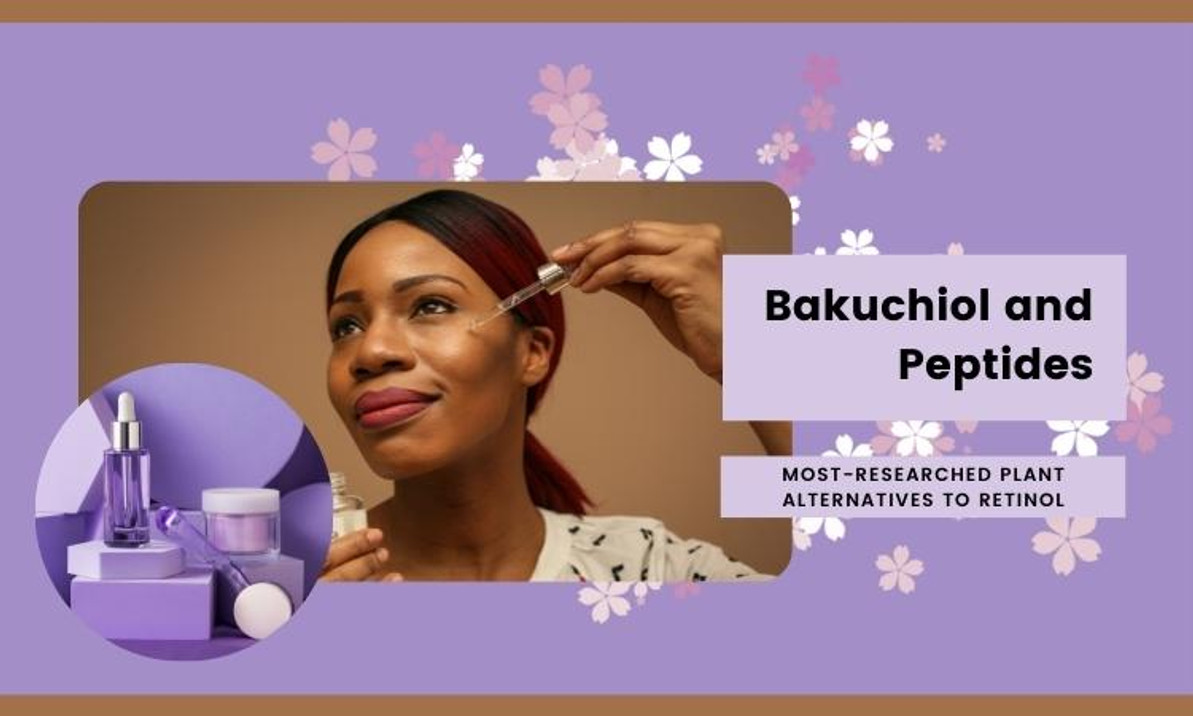Bakuchiol and Peptides: Most-Researched Plant Alternatives to Retinol
In the vast world of skincare, one ingredient remains the gold standard: retinol. Most dermatologists recommend you use retinol cream in your 20s, and if you start there, you'll most likely be addicted to its forehead-smoothing, pigmentation-busting abilities. A chemical derivative of vitamin A, it also has many other benefits in skincare. For example, retinol increases skin cell turnover in the right quantities (over 0.3%) and encourages the shedding of damaged cells to reveal new, smooth, healthy skin. In addition, retinol helps correct dark spots and boost collagen production, plumping any fine lines. The skin shedding process also unblocks plugged pores, so retinol can help manage acne, too. Considering retinol's many capabilities, it's hardly surprising we are all interested in learning more. A while ago, unless prescribed, it was tough to get effective retinol products, but now we have more knowledge and a recommended process to follow. First, you need to gradually build up a tolerance to a new retinol product; otherwise, the rapid increase in skin purging can damage the skin barrier, causing irritation, scaling, and flaking. You'll start with a 0.3% strength retinol and use a small amount every other night for a couple of weeks while watching how your skin reacts. Then, you can use it nightly if your skin tolerates it. It's always recommended to apply retinol products at night since the ingredient can cause sun sensitivity, so always wear SPF daily. Once your skin can tolerate at least 0.3%, you can move up to a higher strength if you want to. But, if you find a strength that achieves the results you like, there's no need to go higher.
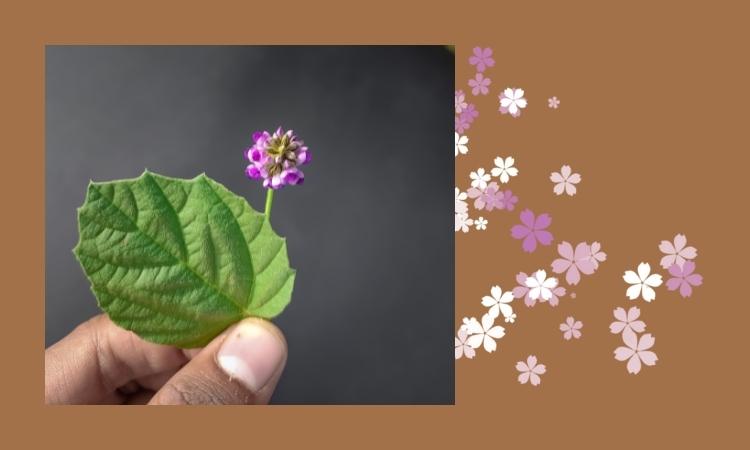
Where does bakuchiol come from?
Bakuchiol is a vegan plant-based skincare ingredient found in the leaves and seeds of Psoralea corylifolia plants. It is a potent antioxidant that visibly reduces skin discolorations from environmental exposure and has a pronounced soothing effect on the skin. Bakuchiol is rooted in Chinese Medicine, and research shows topical application has many benefits for all skin types.
What does bakuchiol do for your skin?
Bakuchiol has soothing properties that help comfort the skin and minimize concerns associated with skin sensitivity. It is also a powerful antioxidant that helps fight signs of aging, fine lines, and loss of firmness by attacking free radicals. Antioxidants also help protect the skin from pollution and other environmental stressors that can cause skin cell damage. The soothing properties of bakuchiol could help those with acne-prone skin as well.
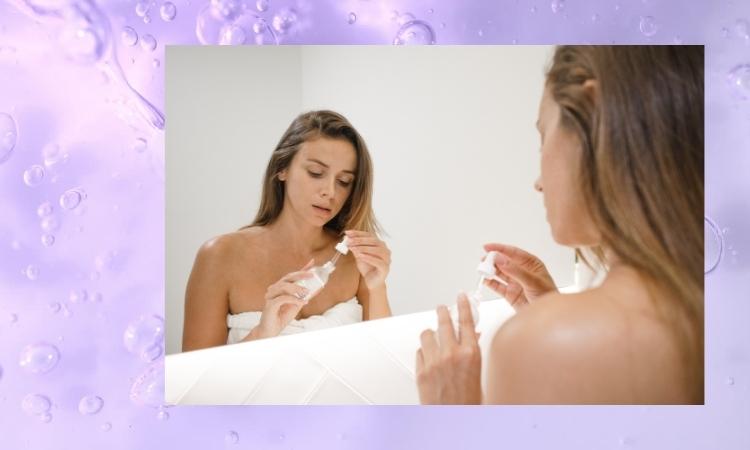
How much bakuchiol should you use at one time?
Adding a bakuchiol product to your daily skincare routine is easy, and the amount you use will always depend on your skin's concerns. However, a step-by-step process exists to get the most out of your product. First, apply your product once or twice a day after cleansing, toning, and using a leave-on AHA or BHA exfoliant. If your product is a bakuchiol serum, apply it before your moisturizer. If it's a moisturizer with bakuchiol, apply it after your serum. Bakuchiol oil is best used at night.
Can you use bakuchiol during the day?
You should apply bakuchiol extract to your face and neck after cleansing. Apply your products from thinnest to thickest, so if your bakuchiol product is a lightweight serum, apply it before your moisturizer. If you decide to use bakuchiol in the morning, follow up with a broad-spectrum SPF rated 30 or greater. That said, it is safe to use bakuchiol during the day, only if you use a decent SPF.
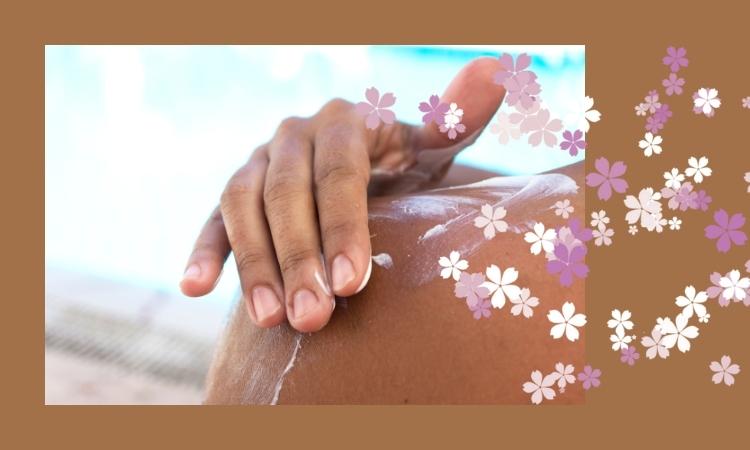
How often should you use bakuchiol?
It is safe to use bakuchiol daily if your skin tolerates it well. However, if you experience burning, redness, or dryness, decrease the number of days per week you apply bakuchiol.
Can peptides and bakuchiol help with rosacea?
Because bakuchiol has antioxidant, anti-inflammatory, and antibacterial properties, it is especially ideal for anyone with sensitive skin, rosacea, or inflamed acne.
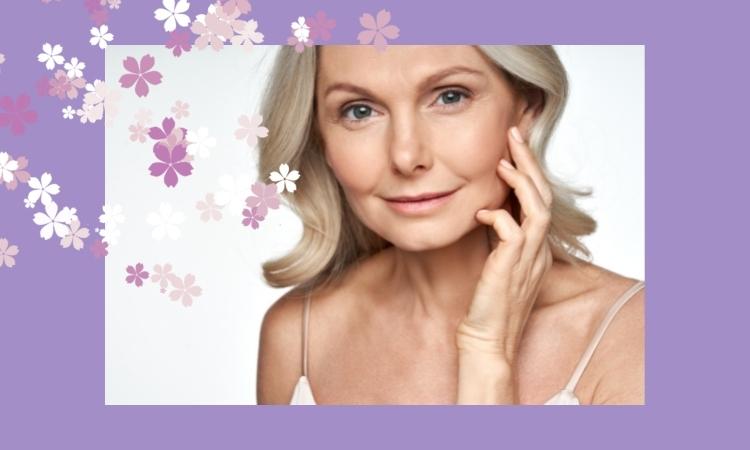
Does bakuchiol help with hyperpigmentation?
Bakuchiol shows similar functions to traditional retinol by targeting similar cellular pathways. As a result, it offers skin benefits, including smoother texture, less hyperpigmentation, improved elasticity, and fewer wrinkles.
Is bakuchiol the same as retinol?
Bakuchiol is regularly referred to as a natural alternative to retinol. The bakuchiol-retinol alternative connection is because bakuchiol follows similar skin-improving pathways; however, it doesn't work precisely the same. Nevertheless, retinol and bakuchiol help reduce fine lines, wrinkles, and other signs of aging, and it's excellent to use a product that contains both ingredients at once. In addition, bakuchiol has a natural stabilizing effect on vitamin A, not to mention its soothing properties can improve the skin's tolerance to various strengths of retinol.
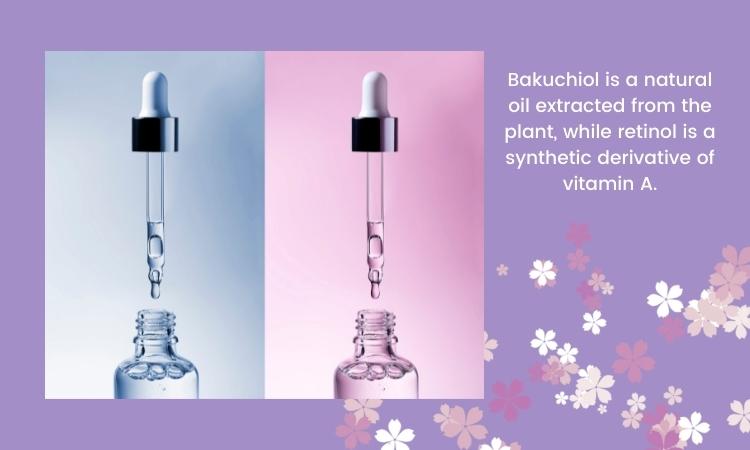
How long does it take you to see results from bakuchiol?
Most research shows that bakuchiol needs about 12 weeks of application to produce smoother, firmer, and more youthful-looking skin. Still, depending on your application frequency and skin type, you could see skin conditions begin to improve in as little as two weeks with at least 1%.
Can you use peptides with bakuchiol?
Peptides and bakuchiol work fantastic together. Some brands mix the two into night cream or serum for maximum benefits.
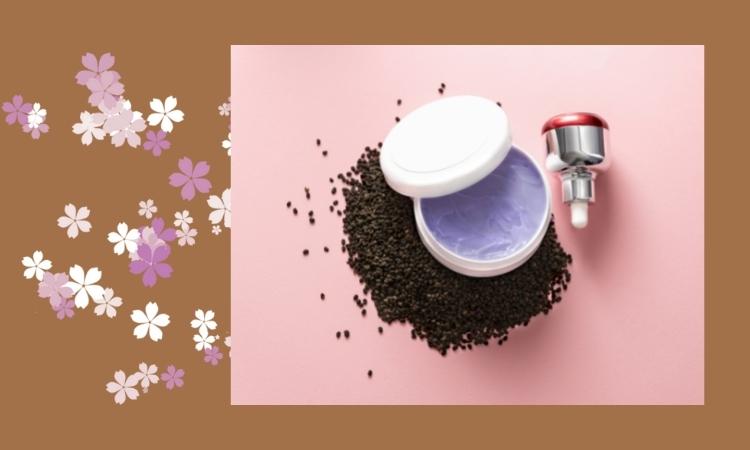
What can not be mixed with bakuchiol?
Bakuchiol is not known to interact with other skincare ingredients negatively. However, there are some instances where you should avoid specific products when using retinol, like exfoliators, toners, and benzoyl peroxide, because they can irritate your skin. But bakuchiol is considered safe.
Can you use bakuchiol while pregnant?
Some online sources say using bakuchiol during pregnancy is safe, stating it's a great alternative to retinol, which isn't advised for use when pregnant or breastfeeding. However, no safety data has been able to support this recommendation because bakuchiol is relatively new to the skincare world. On the more positive side, the chemical difference between bakuchiol and vitamin A is significant enough that you shouldn't expect any issues. Nevertheless, if you're pregnant or breastfeeding, we advise checking with your healthcare provider before using any bakuchiol products.

Bakuchiol and peptide summary:
If you want to visibly brighten your skin and soften the signs of skin aging, bakuchiol and peptides in your skincare routine are the new way to go. A serum or product containing 1% pure bakuchiol or more is ideal. Bakuchiol and peptides are the perfect daily oil-based serum suitable for all skin types, even the most sensitive. Bakuchiol is a plant-based molecule that has been clinically proven to show results. There may be a time or two when you might not be able to include vitamin A in your routine, most notably during pregnancy and while nursing, as it's not recommended. Bakuchiol and peptides are the ideal alternative to retinol and to complete an effective skincare routine at any stage of life. Just don't forget, if you apply it during the day, use at least SPF 30.
Recent Posts
-
Peptides For Skin: Exploring the Anti-Aging Benefits of Peptides in Skincare
Exploring the Anti-Aging Benefits of Peptides in Skincare In the universe of advanced skincare, th …Apr 25th 2024 -
Discover the Perfect Glasses & Styles to Enhance Your Rectangle Face Shape!
Your face shape plays a significant role in determining the most flattering hairstyles and makeup te …Apr 17th 2024 -
Moroccanoil Treatment for Hair: The Ultimate Guide
Moroccanoil Treatment for Hair: The Ultimate Guide In the world of hair care, few products have …Apr 1st 2024

